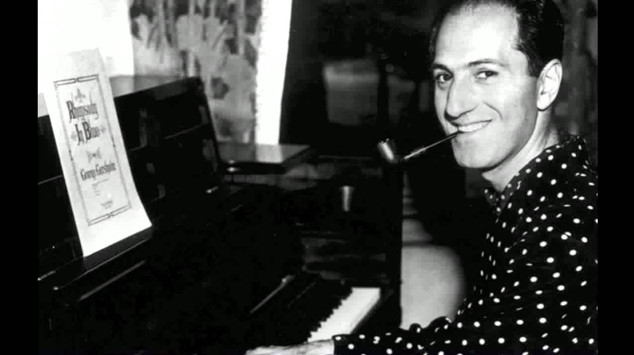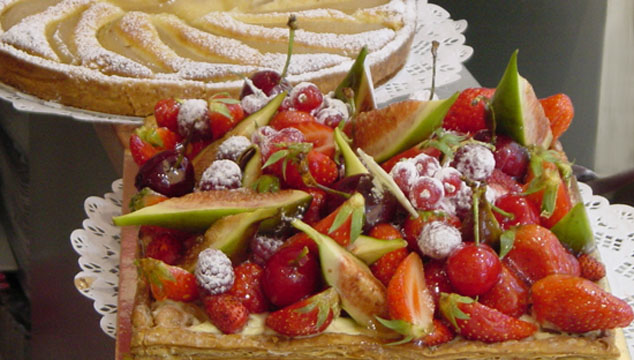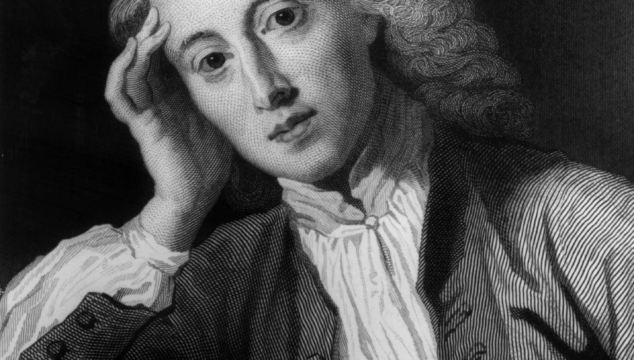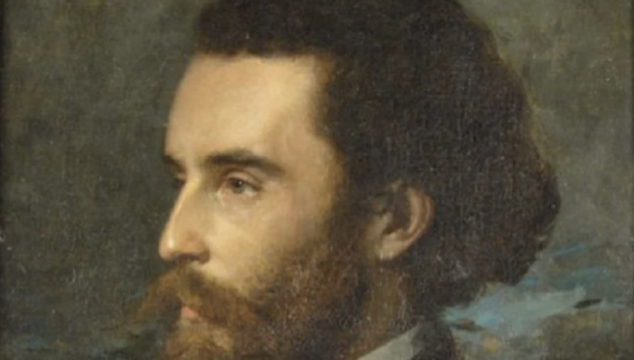George Gershwin’s Rhapsody in Blue was first performed by him in a concert with the Paul Whiteman orchestra on Abraham Lincoln’s birthday, February 12, 1924. We’re hearing a recording from 1927, with Gershwin himself at the piano and in an arrangement for jazz band created by Ferde Grofé, Whiteman’s chief arranger. The sound of this […]
A Wife’s Unseen Battle: Do I Hope to Like Things—or Be Displeased?
Originally presented at an Aesthetic Realism seminar in NYC, with a discussion of Katherine Mansfield's short story, "The Escape."
One lovely fall evening, as I was home making a deep-dish apple pie, I reached up into the cabinet for my flour sifter, but it wasn’t there. “Did someone move my sifter?,” I yelled out in displeasure. Since there were only two cats and one other person in the apartment, who could have moved it? […]
I Learned This about Food
First given in a dramatic presentation at the Aesthetic Realism Foundation, NYC
Aesthetic Realism, founded by the American philosopher Eli Siegel, has identified contempt as the “disposition in every person to think he will be for himself by making less of the outside world.” My life can be used to understand one form contempt can take in a person, and also the best thing in us—our hope […]
A Class on Alexander Pope’s Poem “An Essay on Criticism”
Report of an Aesthetic Realism class in which Eli Siegel discussed Alexander Pope's poem on criticism and Shakespeare's "Hamlet."
In a historic class on September 14, 1975, Eli Siegel, Founder of Aesthetic Realism, read and discussed lines from what he has described as “one of the great poems of English literature,” Alexander Pope’s “An Essay On Criticism.” Written in 1709, the poem is, Mr. Siegel said, “still alive,” and he discussed it in a […]
What Does Poetic Music Go For?
Report of an Aesthetic Realism class in which Eli Siegel speaks about Alfred de Musset and his poem "À la Malibran"
I’m reporting on a historic lecture Eli Siegel gave on December 3, 1969, titled “What Does Poetic Music Go For?” He is the critic who has explained what makes for music in poetry—poetry of any time from Sappho to Shakespeare to Elizabeth Barrett Browning. “Poetry,” Mr. Siegel stated, “is the oneness of the permanent opposites […]




